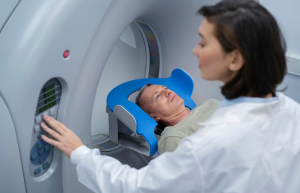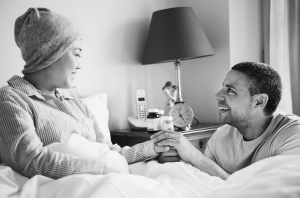Chemotherapy stands as a beacon of hope in the struggle against cancer. By deploying a cocktail of drugs, chemotherapy strives to tackle the invisible enemy – cancer cells that multiply at breakneck speeds. This treatment significantly extends lives, and more importantly, elevates quality of life during what is an incredibly challenging time.
Knowledge is power, especially when it comes to chemotherapy. Clarity and reliable information are indispensable for anyone going through this journey. When it comes to dispensing wisdom on these matters, no one is better equipped than oncologists, the stalwart navigators of cancer care who bring not just Chemotherapy guidance from oncologists but the compassion and context that is equally vital.

What is Chemotherapy
Contents
- 1 What is Chemotherapy
- 2 How does Chemotherapy Work
- 3 What Are The Side Effects of Chemotherapy
- 4 How Long Does Chemotherapy Take
- 5 Can I Continue My Regular Activities While Undergoing Chemotherapy
- 6 Will Chemotherapy Affect My Fertility
- 7 How Can I Manage Side Effects
- 8 Are There Any Dietary Restrictions During Chemotherapy
- 9 How Will I Know If The Chemotherapy Is Working
- 10 What Are The Options If Chemotherapy Doesn’t Work
At its heart, chemotherapy seeks to quell the uncontrolled spread of nefarious cancer cells. This mission is central to many FAQs. It uses medicinal weaponry, carefully chosen and administered, to interrupt the growth and colonization of malignant cells.
While it’s often talked about as a standalone treatment, chemotherapy may also be used in concert with other methods, like the precise beams of radiation therapy or surgical interventions. Each patient’s battle plan is unique to their need, factoring in the sort, location, and maturity of the cancer they are fighting.

How does Chemotherapy Work
One might wonder, in the list of questions, how these drugs so selectively besiege cancerous cells. Well, they’re designed to zero in on cells that are rapidly dividing – a trait synonymous with cancer. However, not all fast-growing cells are cancerous, which accounts for some of the side effects patients experience.
It’s a delicate balance, a scientific seesaw, if you will, which oncologists carefully manage. The ideal is to deal a decisive blow to cancer cells while minimizing casualties among the body’s healthy cells.
What Are The Side Effects of Chemotherapy
Navigating the landscape of this, one can’t overlook the side effects. Yes, there are the usual suspects – weariness, hair loss, and rounds of nausea – that arise from the collateral damage chemotherapy inflicts on innocent bystander cells in its mission.
These unwelcome effects vary widely across the spectrum of patients – with most being temporary. They can also be managed, mitigated, or at times even prevented, to ensure that patients can keep cancer in their sights without losing themselves in the battle.

How Long Does Chemotherapy Take
Time, in the context of chemotherapy, is not a one-size-fits-all measurement. It’s truly a bespoke element, tailored to the uniqueness of every individual’s medical portrait. How one responds to treatment, the stage of their cancer, these are the threads that will weave together the timeline of chemotherapy.
It isn’t a continuous onslaught; it’s a rhythm of treatment and rest – sessions of therapy followed by periods to recuperate. Over months, this pattern recurs, adapting to the changing tides of the patient’s fight against cancer.
Can I Continue My Regular Activities While Undergoing Chemotherapy
Life doesn’t pause during chemotherapy, and many patients wonder about keeping the rhythm of their daily lives. Although side effects like tiredness may call for adjustments and accommodations both at home and work, many aspects of your regular routine can still be maintained.
Open dialogue with caregivers and employers plants the seeds for a supportive environment where your needs are met with understanding. Flexibility and support, from the structural to the emotional, are key during this time.
Will Chemotherapy Affect My Fertility
On the sensitive subject of fertility that often resides within chemotherapy, the truth is that there is potential for impact. The variables are many – from the subset of drugs used to their dosage, and individual susceptibility.
If the future might hold the pitter-patter of little feet, then it’s crucial to bring this conversation to the fore with your oncologist. Preserving fertility is a road that many have walked, and options exist that can suit your circumstances.
How Can I Manage Side Effects
Side effects, while unsought, aren’t insurmountable. They can be tackled with a slew of counter-measures – from medications to relieve discomfort to dietary adjustments that soothe one’s system. Beyond prescriptions, there’s the healing regimen of rest, nutrition, and activity as your body allows.
These side effects, though sometimes severe, are visitors – not residents. With the right care and strategies, they can be kept at bay, allowing you to keep your focus where it belongs: on recovery.

Are There Any Dietary Restrictions During Chemotherapy
When it comes to what’s on your plate during chemotherapy, the watchword is balance. Specific, strict restrictions aren’t usually part of the equation, but a focus on eating healthy and maintaining strength is encouraged. Dieticians and oncologists can deliver guidance tailored to your needs and tastes.
Eating intelligently during chemotherapy isn’t just about nourishment; it’s also a strategy to minimize potential side effects and maintain a robust defense against infections.
How Will I Know If The Chemotherapy Is Working
Tracking chemotherapy’s success is akin to following a trail – with medical tests providing the breadcrumbs. Scans, bloodwork – these are the frames that, when put together, show us a picture of progress – a shrinking or retreating cancer.
The body also narrates its own tale of chemotherapy’s effectiveness through symptom improvement. Yet, it often calls for a bit of patient patience, as the true measure of success may unspool over time.
What Are The Options If Chemotherapy Doesn’t Work
If the voyage of chemotherapy doesn’t lead to the shores we seek, there are alternative maps to chart – new regimens, innovative therapies, and the constantly-unfurling horizon of medical research present paths that your care team can help navigate.
Through Chemotherapy guidance from oncologists, possibilities multiply; they’re as diverse and forward-looking as those who guide the ship. It’s a partnership that pulls together cutting-edge science and personal care to find the route that is just right for you.

Circling back to where we started, the essence of navigating chemotherapy is about understanding, clarity, and professional insight that oncologists are poised to provide. They stand ready to shed light on the shadows that cancer casts, not just with their knowledge but with their ability to empathise and personalize the journey for you. Always remember, in the midst of the complexity that is cancer care, your oncologist isn’t just a physician; they’re a partner in your journey to wellness.

